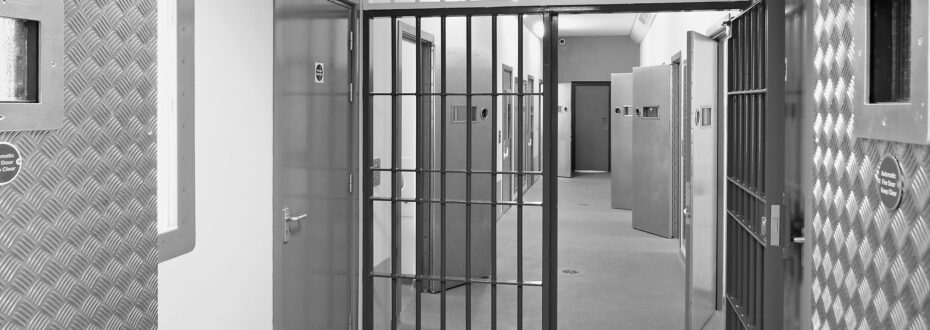By Andy Bell
Last week the Government published a white paper setting out its strategy for prisons in England and Wales.
The use of prison has major implications for mental health. The vast majority of people on remand or serving sentences in prison have at least one mental health difficulty. Complex need is the norm. And rates of serious self-harm and suicide in prisons remain worryingly high.
Policies relating to prisons also affect mental health more widely: from the effect of imprisonment on people’s families to the impact of sentencing on later offending, and the harm that crime causes to mental health in communities.
Justice policies are therefore also mental health policies, and they affect people and communities facing the biggest inequalities and greatest mental health risks most acutely. Justice policies that prioritise rehabilitation, wellbeing and safety can help to improve mental health. Those that do not may ultimately carry a heavy cost for the people concerned, their families and their communities.
“the policy of increasing the use of prison and expanding prison places by 20,000 (including 500 for women) is likely, ultimately, to do a lot more harm than good to mental health”
The strategy includes some positive promises on the provision of mental health support, as well as other actions that may help to boost wellbeing, for example through support with employment and housing, improving access to digital technology, and expanding the prison workforce in response to shortages over recent years.
But the policy of increasing the use of prison and expanding prison places by 20,000 (including 500 for women) is likely, ultimately, to do a lot more harm than good to mental health. And the policy of concentrating prison places in larger establishments where it is harder to support wellbeing could add more risk still. While replacing outdated and unsafe facilities with better and safer environments is welcome, yet another rise in the prison population (already the highest in Western Europe) and the use of larger institutions will do nothing to keep communities safer in the long-term. It will also put more people at risk of mental ill health while they are in custody and afterwards.
“Prison is rarely a conducive environment for treating or recovering from mental illness”
Safe and secure prisons are not just those with the latest security technology in place. They rely on processes and relationships that create safety for prisoners and staff alike. They ensure that vulnerabilities are taken seriously and needs are addressed quickly and effectively. And they enable prisoners to maintain contact with their families where it’s safe to do so, and prepare for a better life when they are released. Only by making all prisons – new or old – fully trauma-informed, where psychological as well as physical safety is a priority, will we see real progress in creating environments that support rehabilitation and reduce risk.
The white paper states that “Prisons can provide the right environment for offenders with these [mental health] needs to move towards recovery, in some cases offering a first chance to access health services.” Our experience and research suggests this is seldom the case. Prison is rarely a conducive environment for treating or recovering from mental illness. And many people in prison have had multiple, often poor, interactions with mental health services from childhood onwards.
“increasing the number of people, in more and bigger prisons, risks putting yet more pressure on mental health services and making it harder to achieve the improvements the white paper seeks to attain”
Prison must never be used as a way to get people mental health treatment. While prisons need to have excellent and fully-funded mental health services in place to meet the high levels of need that exist there, it’s vital that people with mental health difficulties are diverted whenever it is safe to do so away from custody and towards services that can make a difference. And for that, we need investment in community-based services such as Women’s Centres and probation that can provide mental health support as part of a package of rehabilitation for people who do not need to be in custody.
The white paper makes a welcome commitment to improve mental health care in prisons, to speed up transfers to hospital under the Mental Health Act, and to improve support for people with acquired brain injuries or neurodiversity. These are vital steps that need to be taken to ensure no one is left with inadequate support when they most need it. And it must continue when people leave prison, so that no one who needs mental health support is abandoned by the NHS when they leave custody. But increasing the number of people, in more and bigger prisons, risks putting yet more pressure on mental health services and making it harder to achieve the improvements the white paper seeks to attain.







